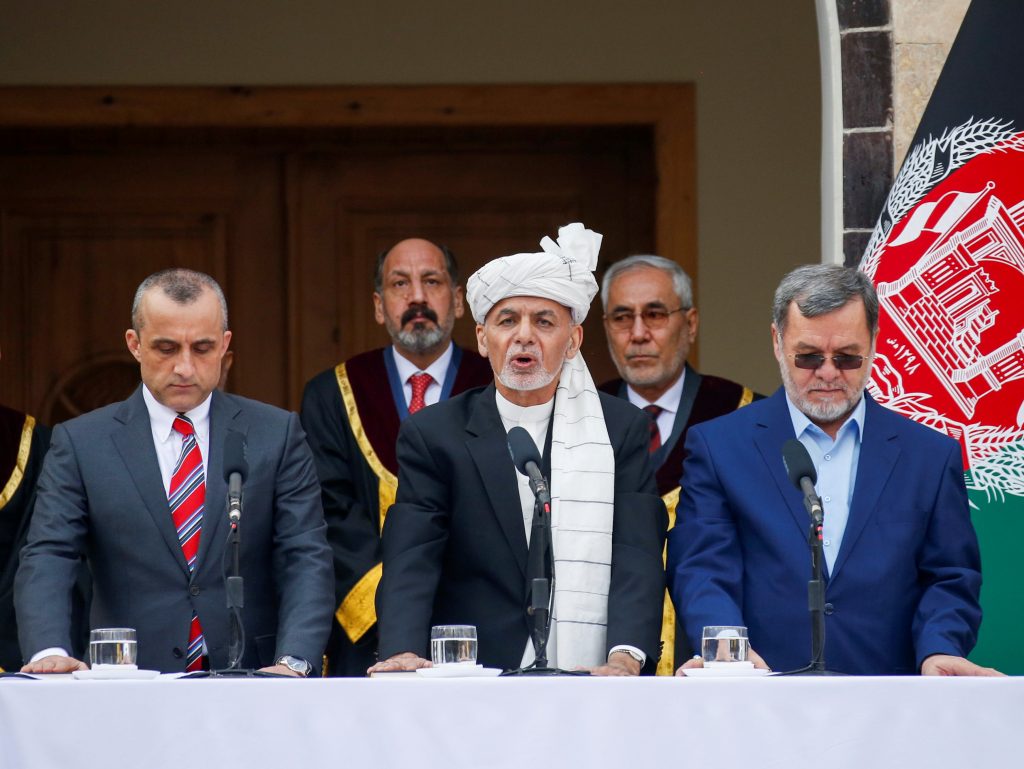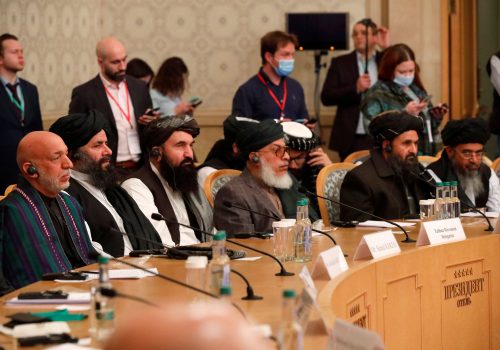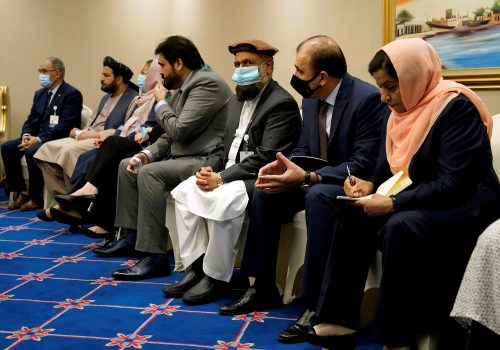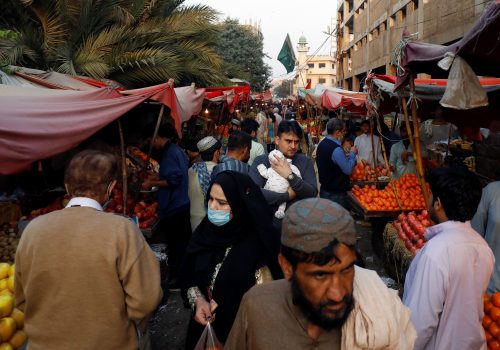On June 1, 2021, the Atlantic Council’s South Asia Center hosted former Afghan Minister of the Economy and current Special Representative & Senior Advisor at the High Council for National Reconciliation (HCNR) Dr M. Mustafa Mastoor and South Asia Center non-resident senior fellows Ambassador Omar Samad and Dr Nilofar Sakhi for a substantive conversation on developments in Kabul related to the ongoing peace process.
Intra-Afghan dialogues: The current landscape
The current lack of consensus among Afghanistan’s political factions highlights the country’s fragmented political landscape and calls for a deeper understanding of the current dynamics that undermine negotiations and prospects for a peaceful, prosperous post-settlement landscape. Though Dr Mastoor welcomes the different views expressed by all parties, Kabul’s political disconnect, along with the US withdrawal and an increase in violence, leaves the Afghan government with less and less room to successfully negotiate and satisfy regional, international, and factional interests. Considering the Istanbul meeting postponement and, what Dr Mastoor deems, were slow talks in Doha: “we need to fast-track the process,” he says. Discussions thus far have stagnated at the contact group level without touching on real negotiations; what compromises, trade-offs, and gains will be made have yet to be anticipated.
A new High Council?
The establishment of a High Council of State is set to materialize in the near future, its 51 members constituting the two vice presidents, the national security advisor, various ministers, and various senior advisors to President Ghani. Though the formation of another government committee has increased anxieties surrounding decision making within negotiations—notably whether or not it will create confusion and further political fragmentation among stakeholders—the new Council’s purpose, says Dr Mastoor, is not to duplicate the HCNR but to complement ongoing efforts of the peace process, to discuss issues beyond it, and to promote greater inclusivity at the decision making levels. Further, while certain analyses have predicted the High Council of State is set to transition into an interim government, doing so would fail to consider both sides of the negotiating table. Rather, a successful process requires the Afghan government and the Taliban to discuss the general framework of a peace agreement, decide the end state, and subsequently agree on an interim government.
Achieving a political settlement
With forty years of conflict weighing on their shoulders, the Afghan people seem to increasingly abandon the idea of peace, or so it seems to Ambassador Samad. Discussions of a second resistance, creating local or regional militias, and shoring up forces for defensive reasons have circulated Kabul and indicate a disconnect between domestic and international expectations: survival for the former, and a political settlement for the latter. However, Dr Mastoor offers reassurance that many Afghans stand behind an inclusive political settlement, as do the Taliban. Continuing the war would prove futile given it requires high-level financing and the group would likely lose international assistance. Achieving a political settlement, therefore, is in the best interests of all involved—the Afghan government, the Taliban, regional actors, and the international community.
Nonetheless, many questions remain to be answered amid the peace process and in the post-settlement climate, notably whether or not the Afghan Republic is strong enough to withstand what is to come, as Dr Sakhi observes. Dr Mastoor believes in the capabilities of the Afghan National Defense and Security Forces (ANDSF) and Afghanistan’s future political prospects, emphasizing the importance of moral support to boost confidence and trust, yet holds reservations on the expertise of various Security Ministers, noting his belief that many come from irrelevant backgrounds. The President’s top priority should, in his opinion, be to replace those Ministers with more qualified individuals and fill all vacant positions. Of benefit to Afghanistan, however, is the United States, NATO, and other allies’ commitment to continue providing contractors that support the ANDSF. Overall, preserving the gains of the past two decades and achieving peace remain the Afghan government’s primary goals.

The South Asia Center is the hub for the Atlantic Council’s analysis of the political, social, geographical, and cultural diversity of the region. At the intersection of South Asia and its geopolitics, SAC cultivates dialogue to shape policy and forge ties between the region and the global community.
Related Content
Image: Afghanistan's President Ashraf Ghani, his first Vice President Amrullah Saleh (L) and second Vice President Sarwar Danish (R) taken an oath during their inauguration, in Kabul, Afghanistan March 9, 2020. REUTERS/Mohammad Ismail



